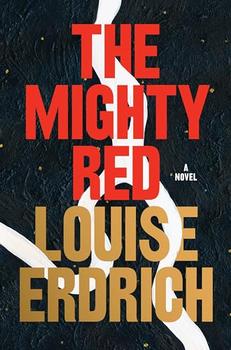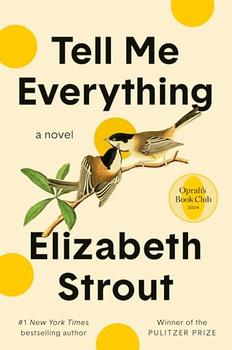Summary | Excerpt | Reading Guide | Discuss | Reviews | Beyond the book | Read-Alikes | Genres & Themes | Author Bio
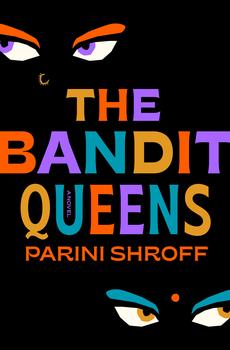
A Novel
by Parini ShroffA young Indian woman finds the false rumors that she killed her husband surprisingly useful—until other women in the village start asking for her help getting rid of their own husbands—in this razor-sharp debut.
Five years ago, Geeta lost her no-good husband. As in, she actually lost him—he walked out on her and she has no idea where he is. But in her remote village in India, rumor has it that Geeta killed him. And it's a rumor that just won't die.
It turns out that being known as a "self-made" widow comes with some perks. No one messes with her, harasses her, or tries to control (ahem, marry) her. It's even been good for business; no one dares to not buy her jewelry.
Freedom must look good on Geeta, because now other women are asking for her"expertise," making her an unwitting consultant for husband disposal.
And not all of them are asking nicely.
With Geeta's dangerous reputation becoming a double-edged sword, she has to find a way to protect the life she's built—but even the best-laid plans of would-be widows tend to go awry. What happens next sets in motion a chain of events that will change everything, not just for Geeta, but for all the women in their village.
Filled with clever criminals, second chances, and wry and witty women, Parini Shroff's The Bandit Queens is a razor-sharp debut of humor and heart that readers won't soon forget.
One
The women were arguing. The loan officer was due to arrive in a few hours, and they were still missing two hundred rupees. Rather, Farah and her two hundred rupees were missing. The other four women of their loan group had convened, as they did every Tuesday, to aggregate their respective funds.
"Where is she?" Geeta asked.
No one answered. Instead, the women pieced their respective Farah sightings into a jigsaw of gossip that, to Geeta's ears at least, failed to align. Saloni—a woman whose capacity for food was exceeded only by her capacity for venom—goaded most of the conversation.
"This isn't the first time," Priya said.
"And you know it won't be the last," Saloni finished.
When Preity mentioned she was fairly certain she'd seen Farah buying hashish, Geeta felt it best to nudge them to more prosaic matters. "Varunbhai is not going to like this."
"Well, now we know where her money's going," Priya said.
"Some devout Muslim." Saloni sniffed, the gesture dainty for a woman of ...
Here are some of the comments posted about The Bandit Queens in our legacy forum.
You can see the full discussion here.
Do you think violence can ever be justified?
Yes, some circumstances justify violence - especially if it is in response to violence being enacted upon you. Then violence may be the only means of justification. - taking.mytime
Farah approaches Geeta for help in doing away with Samir. What would you have done if placed in Geeta's position?
Murder is not in my wheelhouse, so thankfully society has come up with other options. Domestic violence as a crime is better reacted to now than it has ever been. There are so many differences between Geeta's life style and mine - she did not ... - taking.mytime
Karem tells Geeta "Sometimes to do the right thing, you have to do the wrong one first." What do you think he means?
I think there is always push and pull between right and wrong. Everyone knows that people do not always do the "right" thing. However what is right for one person is wrong for another. We can only grow by testing these apotheosis out. I don... - taking.mytime
Karem tells Geeta that love isn't a feeling, it's a "choice you renew every day." Do you agree with him?
I agree with Karem - love is a choice that you make daily - however I also think it is a feeling. It starts from a feeling and grows into something that you want to foster and rekindle on a daily basis. - taking.mytime
One of the things that makes the strong female characters in the novel so relatable is that they are flawed. Which flaws made the characters feel more relatable to you?
So many flaws - back stabbing, lying, pride, keeping things to themselves, grudges - taking.mytime
Parini Shroff's The Bandit Queens is a darkly comedic tale about female friendship and women's empowerment that upholds respectful discourse about violence against women in India and the systems that perpetuate that brutality. Shroff's novel is a delicate tightrope act, always balancing on the line between comedy and tragedy. It quickly won my heart in engaging with sexism and casteism gracefully. Seamless dialogue reads as if it's from a binge-worthy Netflix series and descriptions perfectly encompass the author's balanced approach. Her acerbic wit and cheekiness surprised me throughout the novel, and I often felt like the third–person narrative was both its own character and a friend of mine...continued
Full Review
(636 words)
This review is available to non-members for a limited time. For full access,
become a member today.
(Reviewed by Lisa Ahima).
 Charmaine Wilkerson, New York Times bestselling author of Black Cake
The Bandit Queens is an original, memorable, and endearing story. At times deeply serious, then laugh-out-loud funny, Parini Shroff has written a sobering but hopeful exploration of womanhood, social injustices, and second chances.
Charmaine Wilkerson, New York Times bestselling author of Black Cake
The Bandit Queens is an original, memorable, and endearing story. At times deeply serious, then laugh-out-loud funny, Parini Shroff has written a sobering but hopeful exploration of womanhood, social injustices, and second chances. Cristina García, New York Times bestselling author of Dreaming in Cuban and The Lady Matador's Hotel
Parini Shroff's debut novel is a rollicking mash-up of adventure story, thriller, dark revenge, and comedy. Rooted in a rural village in India—and led by the pariah widow Geeta, whom everyone believes to have killed her husband—a handful of women band together to take back their lives, and take down the patriarchy. An immensely enjoyable read!
Cristina García, New York Times bestselling author of Dreaming in Cuban and The Lady Matador's Hotel
Parini Shroff's debut novel is a rollicking mash-up of adventure story, thriller, dark revenge, and comedy. Rooted in a rural village in India—and led by the pariah widow Geeta, whom everyone believes to have killed her husband—a handful of women band together to take back their lives, and take down the patriarchy. An immensely enjoyable read! Elizabeth McCracken, bestselling author of The Souvenir Museum and The Hero of This Book
Parini Shroff's splendid The Bandit Queens is a hilarious romp about serious things—as serious as a novel gets, and as funny, too, with characters who are dear and maddening and indelible and gorgeously drawn. Twisty, compulsive, bold, surprising, moving: It's a wonderful book.
Elizabeth McCracken, bestselling author of The Souvenir Museum and The Hero of This Book
Parini Shroff's splendid The Bandit Queens is a hilarious romp about serious things—as serious as a novel gets, and as funny, too, with characters who are dear and maddening and indelible and gorgeously drawn. Twisty, compulsive, bold, surprising, moving: It's a wonderful book. Téa Obreht, New York Times bestselling author of The Tiger's Wife
Shroff captures the complexity of female friendship with acuity, wit, and a certain kind of magic irreverence... . The Bandit Queens is tender, unpredictable, and brimming with laugh-out-loud moments.
Téa Obreht, New York Times bestselling author of The Tiger's Wife
Shroff captures the complexity of female friendship with acuity, wit, and a certain kind of magic irreverence... . The Bandit Queens is tender, unpredictable, and brimming with laugh-out-loud moments.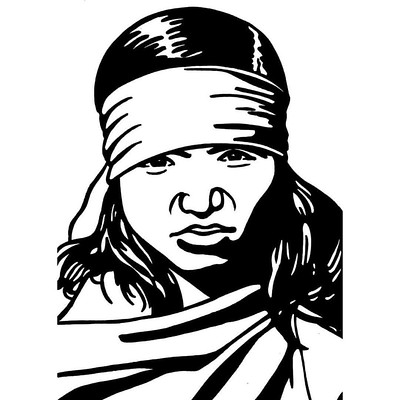 In Parini Shroff's The Bandit Queens, Phoolan Devi (pronounced POOH-lann DAY-vee) is a feminist symbol of strength, poise and honor to abused women, her portrait hung high in main character Geeta's home. Devi, known as India's "Bandit Queen," is the only real-world figure highlighted throughout the novel. So who exactly was she?
In Parini Shroff's The Bandit Queens, Phoolan Devi (pronounced POOH-lann DAY-vee) is a feminist symbol of strength, poise and honor to abused women, her portrait hung high in main character Geeta's home. Devi, known as India's "Bandit Queen," is the only real-world figure highlighted throughout the novel. So who exactly was she?
Devi was born on August 10, 1963 in a small rural village, Ghura Ka Purwa. She was Nishad, a sub-caste of the Mallah caste that has been socially and economically aligned with Dalits, those derogatorily known as "untouchables." Despite growing up in abject poverty and in a patriarchal society, Devi stood up for herself and was notoriously outspoken from a young age — she was not happy about the control ...
This "beyond the book" feature is available to non-members for a limited time. Join today for full access.

If you liked The Bandit Queens, try these:

A Serial Killer's Guide to Marriage
by Asia Mackay
Published 2025
Two former serial killers trying to keep their past buried realize that old habits die hard in this "wildly original, razor-sharp thriller" (Chris Whitaker, New York Times bestselling author of All the Colors of the Dark).
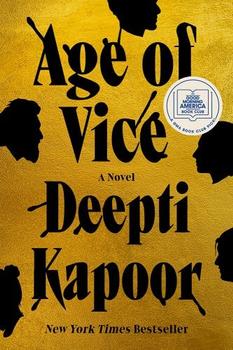
by Deepti Kapoor
Published 2024
This is the age of vice, where money, pleasure, and power are everything, and the family ties that bind can also kill.

